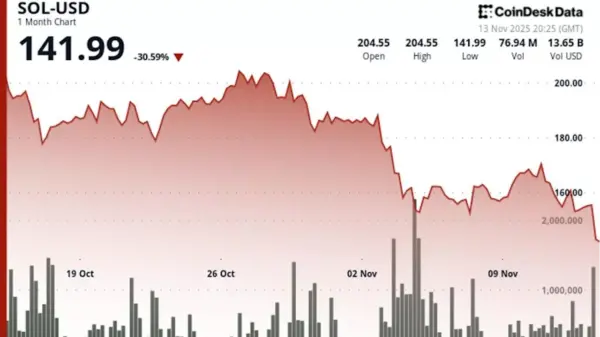Older adults in the United States are experiencing notable declines in cardiovascular health, particularly those suffering from conditions such as high blood pressure, heart failure, or stroke. Research conducted by the American Heart Association (AHA) indicates that these issues significantly reduce heart health and longevity among individuals aged 65 and older.
According to findings based on the Life’s Essential 8 health metrics, individuals within this age group who reported cardiovascular diseases exhibited lower health scores compared to their healthier peers. Life’s Essential 8, introduced in 2022, includes a set of eight critical factors that, when optimized, contribute to better cardiovascular health and overall quality of life. These components encompass a nutritious diet, regular physical activity, avoidance of tobacco products, quality sleep, healthy weight management, and optimal levels of blood lipids, blood glucose, and blood pressure.
Key Findings from the AHA Study
Stacey Rosen, MD, volunteer president of the AHA and senior vice president of women’s health at Northwell Health, emphasized the importance of maintaining heart health as individuals age. “It’s natural that as you age your health may start to decline, particularly as you develop conditions such as high blood pressure or have major cardiovascular events like a stroke,” she stated. Dr. Rosen urged that adopting the principles of Life’s Essential 8 early in life is crucial for long-term health.
The study utilized data collected from the US National Health and Nutrition Examination Survey conducted between 2013 and 2018. It analyzed cardiovascular health changes in a sample of 3,050 older adults, representing an estimated 37,908,305 individuals aged 65 and over. Each participant’s cardiovascular health was assessed using a scoring system based on the Life’s Essential 8 metrics, with scores ranging from 0 to 100. Scores below 50 indicated low cardiovascular health, while those between 50 and 79 represented moderate health, and scores of 80 or more indicated high health.
The results revealed that individuals without any reported cardiovascular diseases had an average score of 68 out of 100. In contrast, those reporting at least one cardiovascular condition had an average score of less than 60. The analysis showed a correlation between the number of cardiovascular diseases reported and declining health scores, with those experiencing multiple conditions scoring significantly lower.
Implications for Aging Population
The findings highlight a worrying trend among older adults. Those with high blood pressure showed a decrease of 4.1% in cardiovascular health scores, while individuals with a history of stroke faced an even steeper decline of 11.5%. Patients with heart failure reported a drop of 15.2% in their scores from 2013 to 2018.
Dr. Rosen noted the urgency of addressing these health declines, particularly as the last of the Baby Boomers will reach the age of 65 within the next five years. “More people are living longer, even after a heart attack or stroke, thanks, in part, to medical advances and improved diagnosis and treatment,” she explained. “We must identify ways to support these older individuals with information and resources to maintain a healthy lifestyle in every way they can, because good health is important at every age.”
The AHA’s research underscores the need for proactive measures to enhance heart health among the aging population. As cardiovascular diseases continue to pose significant threats, public health initiatives focusing on education, prevention, and lifestyle modification are essential in promoting longevity and quality of life for older adults.






































































